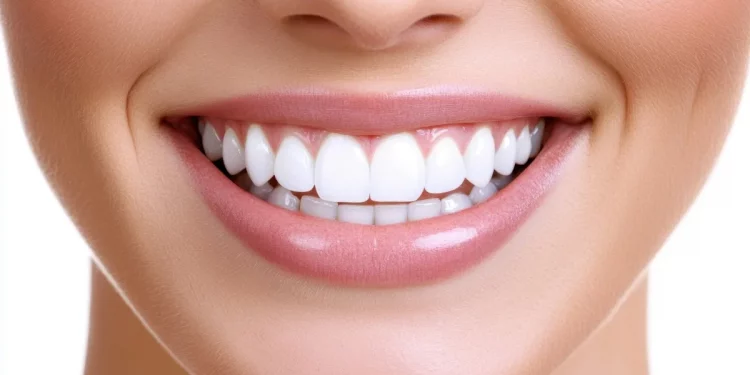Understanding Personal Hygiene in Women’s Wellness
Personal hygiene is a cornerstone of women’s wellness, influencing both physical health and mental balance. A consistent hygiene routine not only prevents infections but also promotes confidence and peace of mind. Effective hygiene practices extend beyond washing; they encompass diet, exercise, mental care, and lifestyle habits.
A holistic approach integrates personal care with overall well-being, ensuring women feel comfortable and empowered in their daily lives. By prioritizing hygiene as a key aspect of wellness, women can protect themselves from illnesses and support long-term health goals.
Daily Hygiene Practices for Physical Health
Daily routines are essential in maintaining cleanliness and health. Basic steps include bathing regularly, washing hands frequently, and practicing oral care. Using mild, pH-balanced soaps and hygiene products is crucial for preventing irritation, especially in intimate areas.
Proper menstrual hygiene is another critical aspect. Regular changing of sanitary pads or tampons, cleaning reusable menstrual products, and choosing products that are gentle on the skin helps prevent infections. Combining these practices with hydration supports overall health, as staying hydrated helps maintain skin elasticity and flush out toxins.
Maintaining Intimate Hygiene
Intimate hygiene is central to women’s wellness. Daily cleansing with mild products, wearing breathable cotton undergarments, and avoiding scented or harsh products reduces the risk of infections.
A stress-free approach to hygiene matters as well. Stress can impact hormone levels, which in turn may affect vaginal health. Integrating relaxation techniques such as meditation or deep breathing supports both intimate wellness and mental clarity.
Skin Care and Personal Hygiene
Skin is the body’s largest organ and requires consistent care. Washing the face twice daily, using moisturizers, and protecting the skin from UV damage are essential. A proper skincare routine enhances both health and self-confidence.
Hydration is equally important for skin care. Drinking adequate water ensures the skin remains supple, flushes out toxins, and maintains a natural glow. Combined with a balanced diet rich in antioxidants, hydration strengthens the body’s defenses against common skin issues.
Hair and Scalp Hygiene
Hair health is an often-overlooked part of women’s hygiene. Washing hair regularly with suitable shampoos, conditioning, and ensuring the scalp is clean prevents dandruff and fungal infections. Avoiding excessive heat styling and chemical treatments preserves hair integrity.
A preventive approach to hair care involves monitoring for scalp changes or hair loss, which may indicate underlying health issues. Maintaining hair hygiene promotes confidence and overall wellness.
Oral Hygiene Practices
Oral health is intricately linked to overall wellness. Brushing twice daily, flossing, and using antiseptic mouthwash prevent cavities, gum diseases, and bad breath. Regular dental check-ups are essential to catch potential issues early.
Proper oral hygiene also contributes to peace of mind, as discomfort or dental issues can cause unnecessary stress and impact daily life.
Stress Management and Personal Hygiene
Stress directly affects women’s wellness. Elevated stress levels can lead to skin problems, digestive issues, and hormonal imbalances. Adopting stress-reduction techniques such as yoga, meditation, or journaling supports both physical and mental health.
Combining hygiene routines with relaxation practices creates a balanced lifestyle. For example, taking warm baths infused with essential oils or practicing mindfulness during self-care routines fosters a sense of calm and promotes holistic wellness.
Smart Hygiene Practices for Active Lifestyles
Women with active lifestyles face unique hygiene challenges. Sweating during workouts can create conditions for bacterial growth, so showering promptly, changing clothes, and cleaning workout gear is essential.
Incorporating portable hygiene kits with hand sanitizers, wipes, and compact skincare products ensures cleanliness on-the-go. This proactive approach helps women maintain hygiene without compromising their fitness routines.
Sleep and Hygiene Connection
Adequate sleep plays a vital role in hygiene and overall health. Poor sleep can exacerbate stress, weaken immunity, and affect skin health. Maintaining a clean sleeping environment—fresh sheets, pillowcases, and a tidy bedroom—supports better sleep quality.
Combining proper sleep habits with personal hygiene practices enhances vitality, mental clarity, and overall peace of mind.
Nutritional Support for Hygiene and Wellness
Nutrition significantly impacts personal hygiene and wellness. Diets rich in fruits, vegetables, lean proteins, and healthy fats support skin health, hair strength, and immune function. Hydration remains key, as water aids digestion, detoxification, and energy levels.
Supplements such as probiotics can also support intimate hygiene by maintaining healthy bacterial balance. Integrating nutrition with hygiene practices provides a comprehensive approach to women’s wellness.
Eco-Friendly and Sustainable Hygiene Practices
Sustainable hygiene practices not only protect personal health but also the environment. Choosing eco-friendly sanitary products, biodegradable wipes, and reusable hygiene items reduces waste and promotes conscious living.
An environmentally responsible approach aligns with wellness, as women feel empowered by making choices that benefit both their health and the planet.
Mental Wellness and Hygiene Practices
Mental wellness and personal hygiene are interconnected. Cleanliness fosters a sense of control and peace, while self-care rituals improve self-esteem and confidence. Incorporating mindfulness into hygiene routines, such as being fully present during skincare or bathing, transforms routine tasks into restorative experiences.
Understanding the mind-body connection reinforces that hygiene is not just about physical care but also emotional and mental well-being.
Tips for Maintaining Consistent Hygiene Routines
Consistency is key in personal hygiene. Tips for maintaining routines include:
- Scheduling daily hygiene tasks as part of a structured routine.
- Keeping hygiene products organized and accessible.
- Combining hygiene with relaxation practices to reduce stress.
- Monitoring personal health indicators like skin changes, oral health, or hair condition.
- Adjusting hygiene practices according to lifestyle, season, and activity levels.
Adopting these practices ensures women maintain high standards of cleanliness, comfort, and overall wellness.
Disclaimer
This blog is for informational purposes only and does not replace professional medical advice. Consult a healthcare provider for guidance on personal hygiene and wellness practices.









